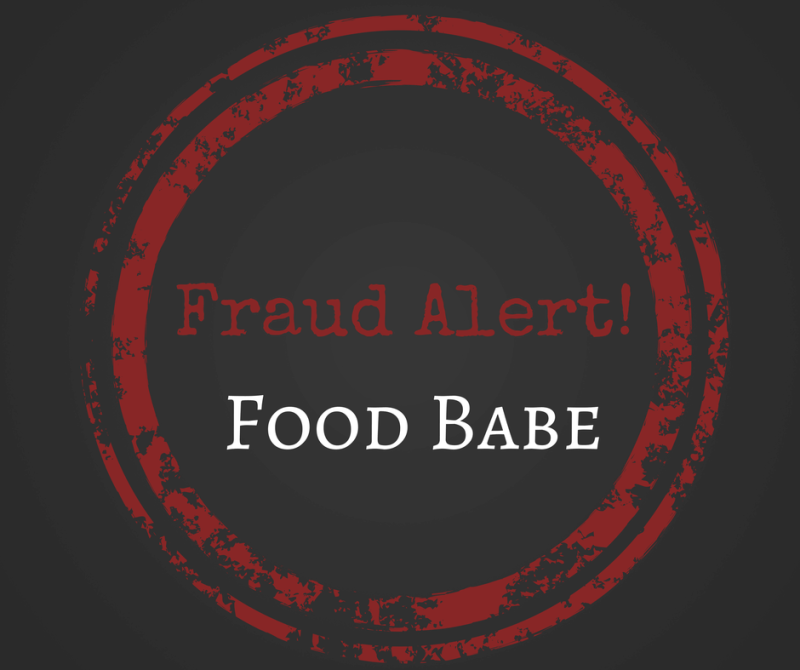Vani Hari, AKA the Food Babe, has amassed a loyal following in her Food Babe Army. The recent subject of profiles and interviews in the New York Times, the New York Post and New York Magazine, Hari implores her soldiers to petition food companies to change their formulas. She’s also written a bestselling book telling you that you can change your life in 21 days by “breaking free of the hidden toxins in your life.” She and her army are out to change the world.
She’s also utterly full of shit.
I am an analytical chemist with a background in forensics and toxicology. Before working full-time as a science writer and public speaker, I worked as a chemistry professor, a toxicology chemist, and in research analyzing pesticides for safety. I now run my own blog, Science Babe, dedicated to debunking pseudoscience that tends to proliferate in the blogosphere. Reading Hari’s site, it’s rare to come across a single scientific fact. Between her egregious abuse of the word “toxin” anytime there’s a chemical she can’t pronounce and asserting that everyone who disagrees with her is a paid shill, it’s hard to pinpoint her biggest sin.
Hari’s superhero origin story is that she came down with appendicitis and didn’t accept the explanation that appendicitis just happens sometimes. So she quit her job as a consultant, attended Google University and transformed herself into an uncredentialed expert in everything she admittedly can’t pronounce. Slap the catchy moniker “Food Babe” on top, throw in a couple of trend stories and some appearances on the Dr. Oz show, and we have the new organic media darling.
But reader beware. Here are some reasons why she’s the worst assault on science on the internet.
Read full, original article: The “Food Babe” Blogger Is Full of Shit































